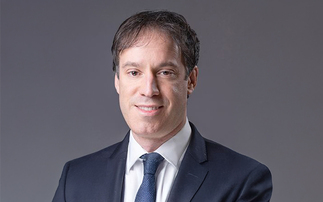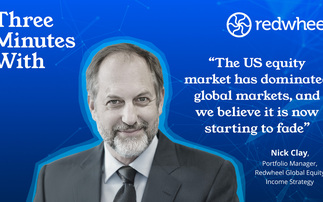Wellington Management's Campe Goodman discusses how to channel capital towards the most beneficial projects.
The world faces diverse challenges from climate change and rising sea levels to the lack of affordable housing in developed economies. Some challenges threaten the planet, others threaten people - three out of ten people in the world lack safely managed drinking water.1
Impact bond investing is the segment of sustainable investing that channels debt market capital towards solving these challenges. The size of global debt markets means that impact bonds could be a huge lever for change, says Campe Goodman, who manages Wellington's first impact bond fund. But how can funds like Goodman's prioritise and measure the impact of investments?
Planetary priorities
Boston-based Goodman says that impact investing should address three categories of urgent global challenge:
• Life essentials, e.g., access to basic needs such as clean water and housing
• Human empowerment, e.g., education, financial inclusion and bridging the ‘digital divide'
• Protection and improvement of the environment, e.g., through renewables and recycling
Goodman, who has contributed to community services around Boston for more than 20 years, is particularly passionate about human empowerment. But he argues that impact investing also demands rigour.
To be selected for Wellington's new fund, an investment must address one of Goodman's three impact categories and be ‘additional' in that the impact can't be easily achieved in other ways.
Critically, the bond's impact on the world must be measurable through a quantitative key performance indicator (KPI), such as the amount of CO2 or methane emissions avoided, the percentage of charity care provided by hospitals, or the units of additional affordable housing constructed.
Mission to measure
Goodman thinks investors need KPI information to steer capital in the most beneficial direction. "If I were to put $100m in a particular investment, what impact would I get and how would I compare that to other investments?" he asks.
At the moment, issuer reporting varies in form and quality. "Building common standards and ways to report KPIs is Challenge Number 1 and could help the market grow," Goodman says.
KPIs will also reassure investors. "The fear of greenwashing is a bigger challenge to impact investing than the limited scale of the greenwashing itself," he says. Most greenwashing issues can be solved by thoughtful managers who look hard at what they are buying, including using KPIs. "So we will work with issuers to create KPIs," he says, "but if no credible KPIs result, our fund will disinvest."
Source:
1 See UN World Water Development Report 2019, Leaving No One Behind, p.18
CAPITAL: All investors should consider the risks that may impact their capital, before investing. The value of your investment may become worth more or less than at the time of the original investment. The Fund may experience high volatility from time to time.
CONCENTRATION: Concentration of investments within securities, sectors or industries, or geographical regions may impact performance.
CREDIT: The value of a bond may decline, or the issuer/guarantor may fail to meet payment obligations. Typically, lower-rated bonds carry a greater degree of credit risk than higher-rated bonds.
CURRENCY: The value of the Fund may be affected by changes in currency exchange rates. Unhedged currency risk may subject the Fund to significant volatility.
INTEREST RATES: The value of bonds tends to decline as interest rates rise. The change in value is greater for longer term than shorter term bonds.
BELOW INVESTMENT-GRADE: Lower rated or unrated securities may have a significantly greater risk of default than investment grade securities, can be more volatile, less liquid, and involve higher transaction costs.
EMERGING MARKETS: Emerging markets may be subject to custodial and political risks, and volatility. Investment in foreign currency entails exchange risks.
Important information
This material and its contents are current at the time of writing and may not be reproduced or distributed in whole or in part, for any purpose, without the express written consent of Wellington Management.
This material is not intended to constitute investment advice or an offer to sell, or the solicitation of an offer to purchase, shares or other securities. Investing involves risk and an investment may lose value. Investors should always obtain and read an up-to-date investment services description or prospectus before deciding whether to appoint an investment manager or to invest in a fund.
Any views expressed are those of the author(s), are based on available information and are subject to change without notice. Individual portfolio management teams may hold different views and may make different investment decisions for different clients.
Except where registered for public sale, Fund units are offered only to qualified or professional investors on a basis that it does not require the registration of the Fund for public sale. The Fund only accepts professional clients or investment through financial intermediaries.
Please refer to the latest Key Investor Information Document (KIID), the Fund offering documents for further risk factors, pre-investment disclosures, and the latest annual report (and semi-annual report) before investing.
KIIDs are available in the official languages of each country in which the Fund is registered for sale (please visit www.wellington. com/ KIIDs). UCITS Funds are authorised and regulated as a UCITS scheme by the Commission de Surveillance du Secteur Financier- Wellington Management Funds (Luxembourg). This material is provided by Wellington Management International Limited (WMIL), a firm authorised and regulated by the Financial Conduct Authority (FCA) in the UK.











